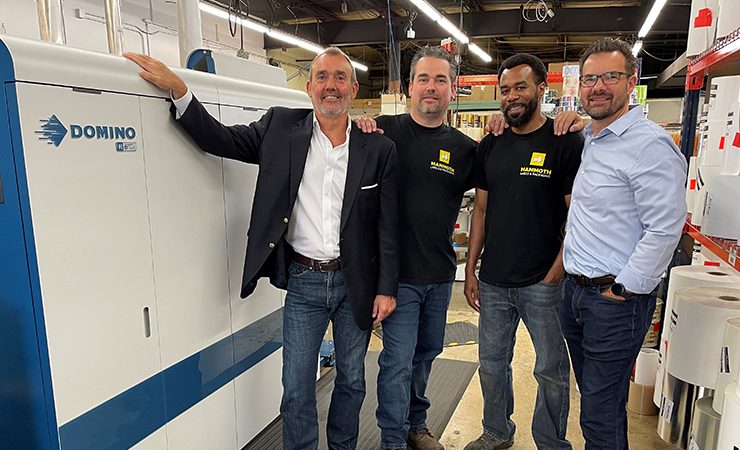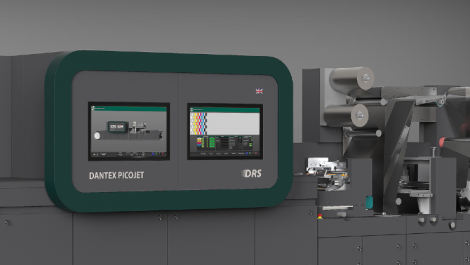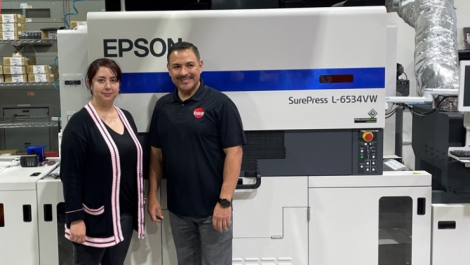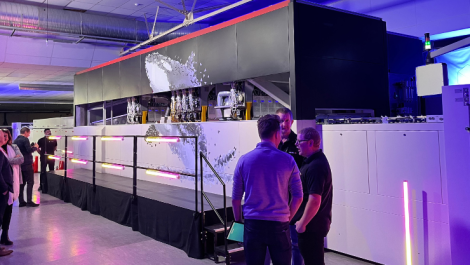Columbus, Ohio-based Mammoth Labels & Packaging has detailed the successes it has achieved since installing a Domino N610i UV inkjet digital label press, as well as its plans for further investment.
Starting out as Boehm Inc. in 1952, the company had a focus on office equipment, stationery, stamps and engraving. As technology has changed, so the company’s focus has shifted. It entered the label printing business with two flexo presses in the late 1990s, and continued with stamps, engraving, and industrial marking and coding equipment. Today, pressure-sensitive labels make up approximately 70% of company sales, and industrial marking and coding the further 30%.
Mammoth Labels & Packaging designs and produces pressure-sensitive labels for wine, beer, spirits, CBD, food processing, and candles, as well as secondary packaging case labels for its largest revenue customer.
The Domino inkjet press was installed in February 2020, and has quickly gained traction within the business and its customer base, as company president Stuart Reeve explained.
‘Our base of business was impacted positively [by Covid-19] due to a large percentage of our customers being in the food and beverage industry. Our digital sales grew 93% in 2020.’
Speaking more generally, he continued, ‘Our customers are requiring shorter runs with more SKUs, which grew our outsourced digital work. We were outsourcing digital labels to another vendor. Bringing that business in-house just made sense. It gave us complete process control and increased margins.’
Mammoth Labels & Packaging opted for the Domino press after reviewing other toner and UV inkjet digital printing options. The throughput and quality of the press, as well as opaque white capability and extensive colour gamut are cited as key drivers in the investment decision.
‘We have aggressive growth goals across all of our markets, which the Domino helps us achieve,’ opined Mr Reeve. ‘The opaque whites will allow us to grow our candle business specifically, and we are now able to focus on the durables market, which we were limited with in the past.
‘The Domino complements our flexo business, and we have migrated some work from flexo to the Domino to reduce waste and efficiencies due to faster make readies and no plates. The industry-leading throughputs of the Domino allow us to competitively price our work while increasing margin. By bringing in the outsourced work, we are now able to sell and market our own production capabilities.’
Mr Reeve concluded, ‘The capabilities and advantages of the Domino press we anticipated are real and we have seen quantifiable efficiencies. I see Domino being a major force in our growth as a label supplier. I will be disappointed if we are not buying another Domino.’






